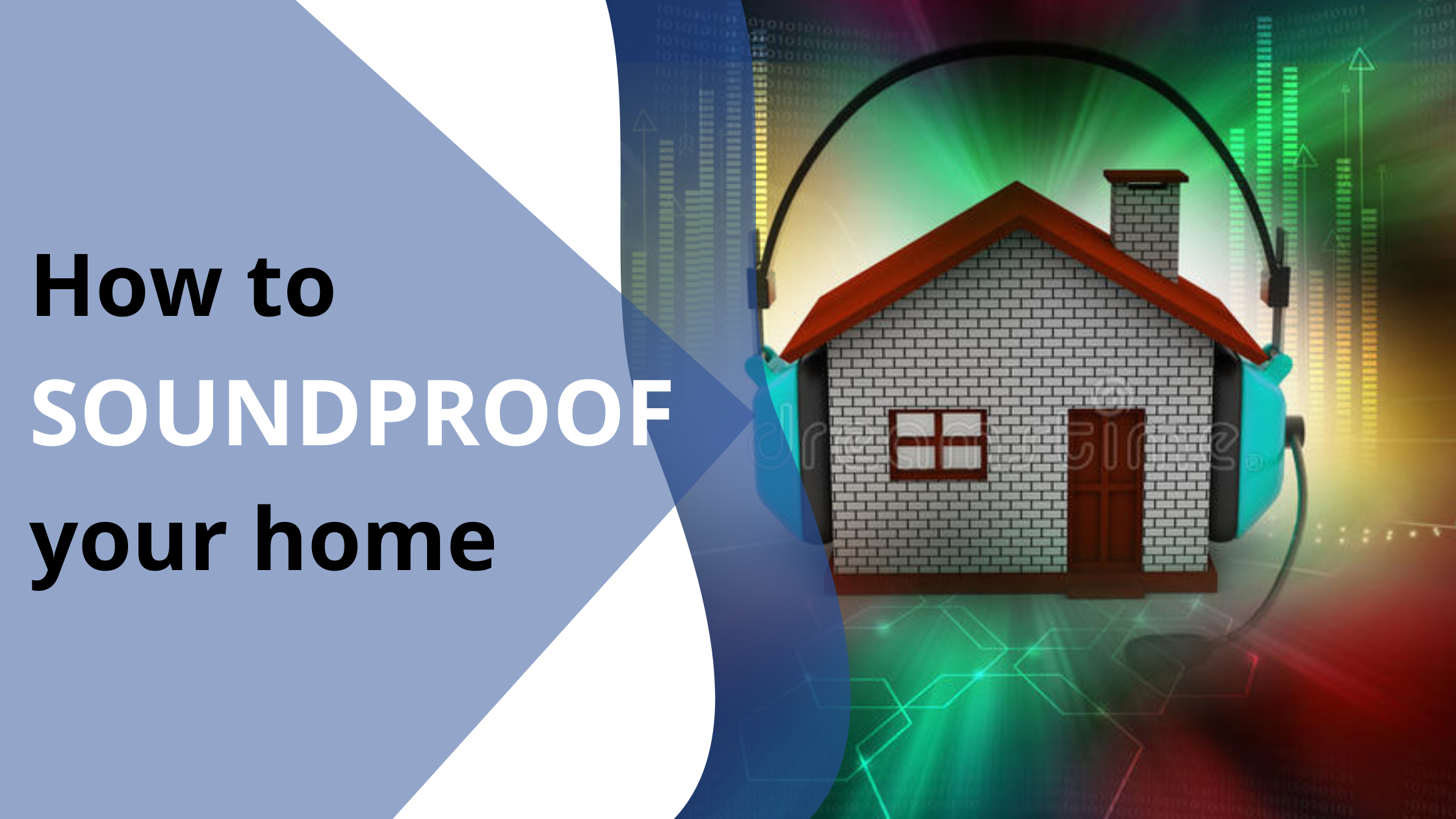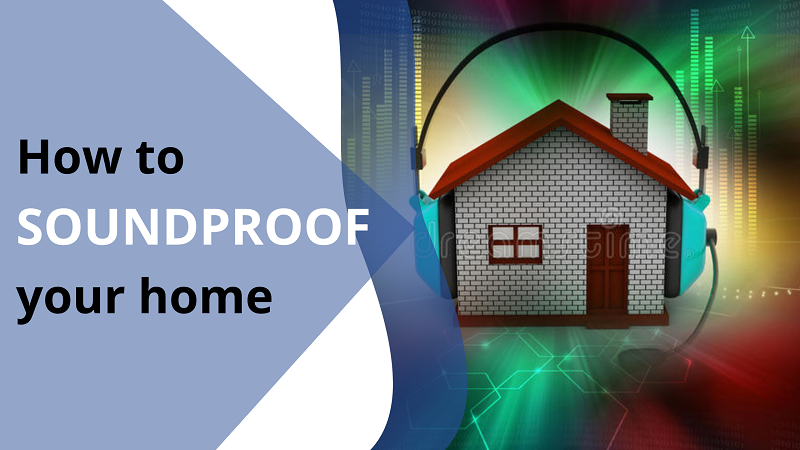Point of View – You are working from home, and have an important call to attend. The neighbour’s dog is barking relentlessly and wouldn’t stop. You cannot reschedule the call. Neither can you get the neighbour’s pet to stop. What do you do? You wish you could block all the noises from the neighbourhood, you wish your room were soundproofed. Let’s check out some ways to soundproof your room.

Methods to Soundproof an already constructed home
Well, It’s easy to soundproof your room. You can do it with inexpensive materials, like cardboard, or you can invest in soundproofing products that will last longer. To get started, make sure the walls are dry and clean with a mop before sealing them up. Then, create different layers of insulation around the house with mattresses, blankets or curtains hung along the walls. Finally, use some simple tricks like hanging bookshelves in front of doors or using curtains at windows to block out noise from outside
Curtains
Curtains are a great way to soundproof your room. They can be made of any fabric, but you want them to be thick enough that they won’t let sound through. The best thing about curtains is that they’re usually inexpensive and easy to install—and they look great too!
When hanging curtains from ceiling-to-floor, make sure not to have any edges touching the floor; otherwise, you’ll get creaks when someone walks through them (which will make noise).
Bookcases
One of the best ways to soundproof a room is by adding bookcases. Bookcases are great for absorbing sound, as they have lots of space to put things and can be used to separate rooms from each other in your house.
If you have an empty wall behind a door or window, consider putting up a bookshelf there instead. You could also use them as barriers between different rooms if you want one room not to hear what’s happening in another room that shares walls with it (like our bedroom).
Rugs
Rugs can help absorb sound, reduce echo and noise, reduce vibration and improve acoustics. You should consider putting down an acoustic rug to help prevent unwanted noise from escaping into your room.
Acoustic rugs are made of thick pile (or wool) material that’s usually placed over hardwood flooring or concrete tiles—the thicker the pile, the better it will be at absorbing sound waves before they reach you (and possibly disturbing your neighbors). They come in all shapes and sizes so you can choose one that’s right for your space!
Hang paintings and pictures
The best way to soundproof your room is by hanging paintings and pictures on the wall. You can hang them at different heights, but make sure they are not too close to the wall. Hang them at various angles and if possible, use mirrors or glass instead of frames.
Mattresses
Mattresses are a great way to soundproof your room. Just make sure you buy one that’s not too firm, and you’ll be good to go.
If you’re looking for something more advanced, consider buying a mattress with hybrid technology. This type of mattress uses both foam and springs in order to provide pressure relief while still keeping the sleeper comfortable.
How to Soundproof your room during Construction phase?
- Thick walls are a great way to soundproof your room. The thicker and denser the materials used for the walls, the more sound it will absorb. A thick concrete or a brick wall helps is this regard.
- Insulation is the most effective way to soundproof a room. However, it’s also the most expensive option. You can buy insulation in different thicknesses and materials such as foam or wool. The best insulations are those that meet both soundproofing and thermal requirements: they keep heat out while reflecting sound waves back into your space.
- Decoupling by separating the two layers of the wall. In rooms like office, where concentration is of prime importance, an option is to build two separate thin layers of wall with a gap in between. As the sound waves traverse through multiple layers, it gets reflected thereby reducing the noise. This method is particularly suitable for windows.
- You may spray damping compounds that convert the mechanical energy from sound to heat. Several damping compounds are available in the market today; which can be directly applied to the walls, floors or ceilings, during the construction phase itself.
- Provide door and window beadings to insulate sound. Your joinery contractor would be able to help you with this while fixing the doors and windows.
- Minimize the use of polished surfaces so that sound doesn’t get reflected. Mirrors, wall surfaces made extremely smooth by the use of wall putty, glossy laminates and floor tiles, plastic finish curtains etc should be used only minimally, if soundproofing is important. You may instead choose matt finish tiles, matt finish laminates, rustic textures for walls, cloth curtains, carpets and rugs.
- Soundproofing panels – Attaching an additional acoustic panel to your walls is a very effective way to soundproof a room.
How would you like to Soundproof your room?
We hope that you were able to learn a few things about soundproofing your home. Soundproofing is an important part of any home and can make it much more comfortable and attractive. We have covered some DIY tips on how to do this, but if you have more money in mind then there are professional contractors out there who can help you achieve these results with ease!


